No results found

We are EMBL: Neil Humphreys on genome editing and saying it all in five simple words
Meet Neil Humphreys, Head of the Gene Editing and Virus Facility at EMBL Rome. Neil and his team work closely with scientists to develop new models, tools, and cutting-edge technologies to support discovery and translational research.
PEOPLE & PERSPECTIVES2025
people-perspectives
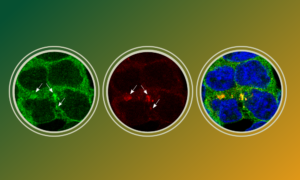
The cellular superhero that protects us against RNA viruses
Scientists have discovered how the antiviral protein TRIM25 finds and binds viral RNA to activate an innate immune response.
SCIENCE & TECHNOLOGY2024
science-technology
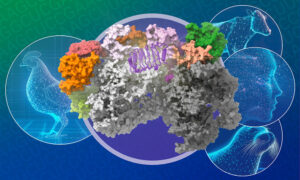
New insights on how bird flu crosses the species barrier
A new publication from the Cusack group sheds light on how a key avian influenza virus enzyme can mutate to allow the virus to replicate in mammals.
SCIENCE & TECHNOLOGY2024
science-technology
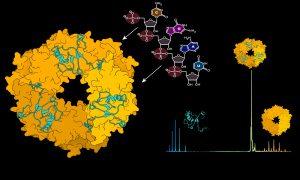
RNA to rule them all
The Kosinski Group at EMBL Hamburg collaborated with other groups in Hamburg to reveal critical steps in Lassa virus ribonucleoparticle assembly and recruitment, and the crucial role played by RNA in in the Lassa virus life cycle.
SCIENCE & TECHNOLOGY2023
sciencescience-technology

Pathogens Portal: The new gateway to public pathogen data
Enabling researchers worldwide to share and analyse pathogen data generated across the world
SCIENCE & TECHNOLOGY2023
sciencescience-technologytechnology-and-innovation

Molecules to Ecosystems: Jan Kosinski on the Infection Biology transversal theme
Jan Kosinski, Group Leader at EMBL Hamburg and one of the co-chairs of the Infection Biology theme in EMBL’s new programme, chats about how this theme will support his work and help establish new collaborations.
LAB MATTERSPEOPLE & PERSPECTIVES2022
lab-matterspeople-perspectives
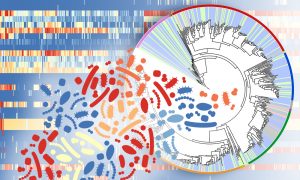
New bacteria and viruses found on human skin
Researchers have identified hundreds of new bacterial species and viruses in the human skin microbiome.
SCIENCE & TECHNOLOGY2022
sciencescience-technology
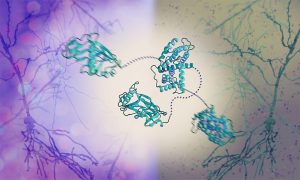
How herpes seizes proteins’ means of production
The Graham and Crump groups at the University of Cambridge and the Svergun Group at EMBL Hamburg have discovered a mechanism by which the herpes simplex virus takes control of the molecular machinery of human cells. Their work reveals how a dedicated viral protein hijacks key host proteins, forcing…
SCIENCE & TECHNOLOGY2021
sciencescience-technology
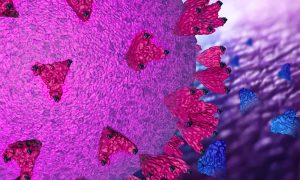
Scientists identify synthetic mini-antibody to combat COVID-19
By screening hundreds of sybodies (synthetic mini-antibodies), scientists have identified one that might stop SARS-CoV-2 from infecting human cells. This work, which holds promise for treating COVID-19, was conducted by EMBL Hamburg and collaborators from the Centre for Structural Systems Biology…
SCIENCE & TECHNOLOGY2020
sciencescience-technology
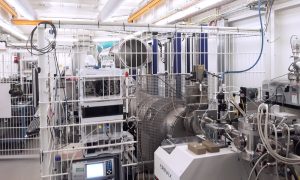
Shining high-brilliance beams on coronavirus structure
EMBL researchers are studying COVID-19-related molecules by exposing them to high-brilliance X-ray beams. The Svergun group at EMBL Hamburg is using biological small-angle X-ray scattering (SAXS) as part of a global effort by scientists to elucidate the structural organisation of SARS-CoV-2…
SCIENCE & TECHNOLOGY2020
sciencescience-technology
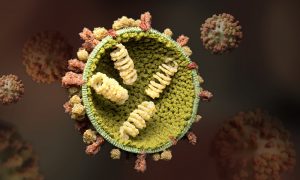
Understanding the influenza virus
The infectious disease commonly known as flu is caused by the influenza virus. It spreads around the world in seasonal outbreaks, causing millions of infections and hundreds of thousands of deaths each year. Stephen Cusack, Head of EMBL Grenoble, has been studying different aspects of the influenza…
SCIENCE & TECHNOLOGY2020
sciencescience-technology

The Arctic Ocean: reservoir of marine viruses
Results from the Tara Oceans expedition reveal the Arctic Ocean as a cradle of viral biodiversity
SCIENCE & TECHNOLOGY2019
sciencescience-technology
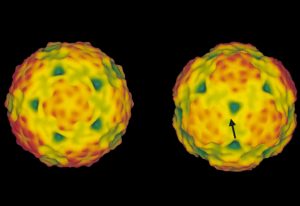
Translating blue-sky research into the clinic
What does it take to create a vaccine or improve cancer therapies?
LAB MATTERSSCIENCE & TECHNOLOGY2018
lab-mattersscience-technology
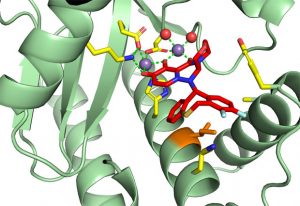
Flu’s response to new drug explored
EMBL scientists investigate how influenza virus responds to new drug treatment
SCIENCE & TECHNOLOGY2018
sciencescience-technology
Shape-shifting shell
As a retrovirus matures, the two parts of its shell protein (red and blue or yellow and blue) dramatically rearrange themselves, twisting and moving away from each other. (Credit: EMBL/T.Bharat) Scientists at the European Molecular Biology Laboratory (EMBL) in Heidelberg, Germany, have for the…
SCIENCE & TECHNOLOGY2012
sciencescience-technology
Getting wise to the influenza virus’ tricks
Influenza is currently a grave concern for governments and health organisations around the world. Now one of the tactics used by influenza virus to take over the machinery of infected cells has been laid bare by structural biologists at the EMBL, the joint Unit of Virus Host-Cell Interaction of…
SCIENCE & TECHNOLOGY2008
sciencescience-technology
A first glimpse of the influenza replication machine
In 1918, 50 million people died during a worldwide influenza pandemic caused by mutation of a bird-specific strain of the influenza virus. Recently H5N1, another highly infectious avian strain has caused outbreaks of bird flu around the world. There is great concern that this virus might also…
SCIENCE & TECHNOLOGY2007
sciencescience-technology
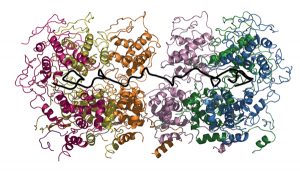
Cracking a virus protection shield
Ebola, measles and rabies are serious threats to public health in developing countries. Despite different symptoms all of the diseases are caused by the same class of viruses that unlike most other living beings carry their genetic information on a single RNA molecule instead of a double strand of…
SCIENCE & TECHNOLOGY2006
sciencescience-technology
Waking a sleeping virus
A detailed structural picture of a molecule that plays a key role in activating the Epstein Barr Virus in human cells has now been obtained by researchers at the European Molecular Biology Laboratory (EMBL) and the Institut de Virologie Moléculaire et Structurale (IVMS), associated with the…
SCIENCE & TECHNOLOGY2006
sciencescience-technology